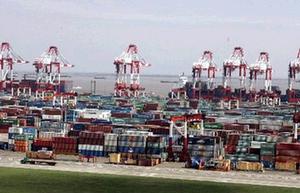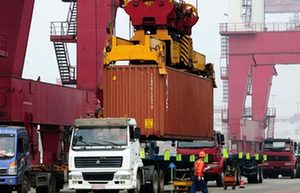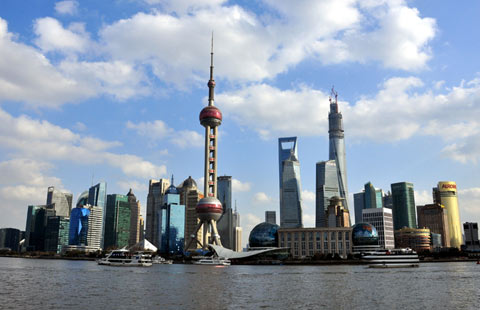Collateral damage from Qingdao probe
By Wei Tian (China Daily) Updated: 2014-06-13 07:11Some Chinese banks have raised margins for letters of credit for iron ore financing to as much as 50 percent from a 30 percent maximum previously.
"Over the long term, however, tighter control will add a degree of confidence to the copper market, limiting the divergence between real and apparent demand," the bank said.
Chinese demand accounts for 40 percent of the global copper market and two-thirds of the global iron ore market.
Wu Yuneng, vice-president of Jiangxi Copper Corp, the second-largest copper producer in China, said the alleged scam in Qingdao won't affect China's overall copper demand over the long term.
"What's happening in Qingdao is an isolated case. It will not change the production and consumption of nonferrous metals or alter the supply-demand relationship in the market.
"The decline in copper prices is only related to macroeconomic risks and the fundamental supply-demand relationship, neither of which is an outcome from Qingdao," he said.
"It is also possible that this wave of price declines is the result of speculative behavior," said Xu Qiyong, a metals analyst with Guotai Junan Securities Co Ltd.
Shares of Qingdao Port, which was listed in Hong Kong only last week, fell another 1.9 percent to HK$3.53 (45 cents) on Thursday.
The Dagang area in Qingdao port has been sealed, and gates to the area have been chained and padlocked. The amount of metals involved in the probe is about 20,000 tons of copper, almost 100,000 tons of aluminum ingots and about 200,000 tons of alumina, Reuters said.
CITIC Resources Holdings Ltd, the commodity trading unit of China's biggest and oldest State-owned financial conglomerate CITIC Group Corp, said on Tuesday that metals it owns at the Qingdao port may be affected by the probe.
China's State Reserve Bureau is checking that its purchases of copper in recent months are free of collateral risks amid the probe into metals stored at Qingdao Port, Bloomberg News reported on Thursday.
The agency bought at least 200,000 tons of copper from bonded storage areas in March and April, Bloomberg cited unidentified sources as saying.
Some copper may be moved from China to LME warehouses in South Korea, and possibly Singapore and Malaysia, said Jeremy Goldwyn, head of business development in Asia for Sucden Financial Ltd.
Analysts fear that the crisis in Qingdao may spread to bonded warehouses in Shanghai, where there are some 600,000 tons of copper stockpiled. That's equivalent to 2.5 percent of global supply, so it could have an impact on the global market, they said.
But Xue Baoqing, head of the nonferrous division of China National Geological and Mining Corp, said there is "little chance" that the Shanghai bonded area is also involved in similar fraud, as the area that handles more than 80 percent of China's copper imports has a sound financial regulation system.
Considering that China's economic slowdown is still within acceptable parameters, the country's copper consumption will exceed 10 million tons this year, Xue said.
"China's copper consumption will maintain annual growth of 4 to 5 percent, supported by urbanization and the residential property market," he said.
|
 |
 |
| Robust growth at Shanghai port | Qingdao Port: Shipments unaffected by investigation |
- Oculus Rift virtual reality gears draw fans in E3
- China's Zhaopin makes public debut on NYSE
- Mobile firms feed off CCTV's FIFA coverage
- Top 10 most attractive FDI destinations in the world
- Policy fears mount as FX reserves increase
- China finds way to play in Brazil
- China to relax control over QDII, QFII
- Alibaba, China Post to cooperate on logistics

















